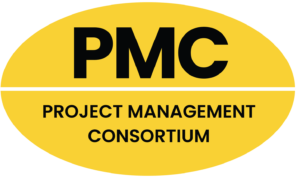The real estate industry has long been a beacon of opportunity for entrepreneurs and investors alike. However, building a successful real estate business requires more than just a passion for property and a knack for negotiation. In today’s competitive market, you need a well-thought-out strategy, dedication, and a commitment to excellence to thrive. This article will guide you through the key steps to grow a successful real estate business, offering insights and tips that can help you navigate the challenges and seize the opportunities in this dynamic industry.
1. Build a Strong Online Presence
In the digital age, your online presence is often the first impression potential clients have of your real estate business. To establish credibility and attract a wider audience, invest in a professional website that showcases your listings, services, and expertise. Ensure that your website is user-friendly, mobile-responsive, and optimized for search engines (SEO). Regularly update your content with informative blog posts, property listings, and client testimonials. A robust online presence not only helps you reach more clients but also positions you as a trusted authority in the real estate field. For example, a quantity surveyor from Brisbane needs to have a good online presence to stay ahead of the competition.
2. Develop a Comprehensive Marketing Strategy
Effective marketing is essential for the growth of your real estate business. Consider various marketing channels, including social media, email marketing, and traditional advertising. Create compelling content that resonates with your target audience, such as virtual property tours, neighborhood guides, and market reports. Real estate SEO services can also boost your online visibility, helping your listings appear higher in search results and attract more qualified leads. Utilize social media platforms like Facebook, Instagram, and LinkedIn to engage with potential clients and showcase your listings. Email marketing can help you maintain contact with past clients and nurture new leads. Remember that consistency and relevance are key to a successful marketing strategy.
3. Network and Build Relationships
Networking is a fundamental aspect of the real estate industry. Attend local real estate events, join industry associations, and connect with other professionals in your area. Building strong relationships with fellow real estate agents, mortgage brokers, contractors, and property inspectors can lead to valuable referrals and collaborations. Networking not only expands your client base but also enhances your knowledge of the local market and industry trends.
4. Offer Exceptional Customer Service
Exceptional customer service sets you apart in the real estate industry. Make an effort to understand your clients’ needs and preferences, and provide personalized solutions. Be responsive and accessible, promptly returning calls and emails. Transparency and honesty are crucial in building trust with your clients. Going the extra mile, whether it’s organizing home inspections or providing valuable market insights, can lead to satisfied clients who refer others to your services.
5. Specialize and Focus
While it’s essential to have a broad understanding of the real estate market, consider specializing in a niche or geographic area. Specialization can help you become an expert in your chosen field, making it easier to target specific clients and stand out from the competition. Whether it’s luxury properties, commercial real estate, or a particular neighborhood, specializing allows you to tailor your marketing efforts and services to a more defined audience.
6. Embrace Technology and Data
The real estate industry is continuously evolving, with technology playing a significant role in this transformation. Stay up-to-date with the latest industry technologies and tools, such as virtual reality tours, AI-powered analytics, and property management software. Useful tools like Giraffe360 use point cloud scanning to create detailed and accurate 3D property models, enhancing visualization and improving measurement precision. Utilize data-driven insights to make informed decisions regarding pricing, marketing, and investment opportunities.
By embracing technology and data, you can streamline processes, enhance client experiences, and gain a competitive edge.
7. Invest in Professional Development
Real estate professionals should never stop learning. Take advantage of industry-specific training and certification programs to enhance your skills and knowledge. Courses in negotiation, real estate law, and marketing can equip you with the expertise needed to excel in your career. Additionally, consider attending workshops and seminars to stay informed about emerging trends and best practices in the real estate field.
8. Manage Finances Wisely
Financial management is crucial for the long-term success of your real estate business. Develop a comprehensive business plan that includes a budget, cash flow projections, and financial goals. Monitor your expenses, maintain a healthy cash reserve, and consider seeking professional real estate tax services for tax planning and overall financial management. Sound financial practices will enable you to weather market fluctuations and make strategic investments when opportunities arise. If you want to learn more about wise financial management, check out PFH’s article about it here.
9. Adapt to Market Changes
The real estate market is subject to fluctuations influenced by economic conditions, interest rates, and other factors. Successful real estate professionals are adaptable and can pivot their strategies when necessary. Keep a close eye on market trends and adjust your approach accordingly. Whether it’s transitioning to a buyer’s or seller’s market or exploring emerging opportunities like short-term rentals, the ability to adapt is essential for sustained success.
10. Measure and Analyze Performance
Regularly assess your business’s performance by tracking key metrics such as conversion rates, lead generation, and client satisfaction. Analyze the effectiveness of your marketing campaigns and adjust them based on the data you gather. Continuously seek feedback from clients to identify areas for improvement. By measuring and analyzing your performance, you can identify strengths and weaknesses, refine your strategies, and make data-driven decisions to grow your real estate business.
Conclusion
Growing a successful real estate business demands a combination of digital prowess, marketing savvy, interpersonal skills, and industry expertise. By building a strong online presence, developing a comprehensive marketing strategy, and nurturing relationships within your network, you can establish your credibility and expand your client base. Exceptional customer service, specialization, and the embrace of technology are essential to stand out in the industry.
Remember that ongoing professional development, prudent financial management, and adaptability to market changes are critical for long-term success. By measuring your performance and continuously striving for improvement, you can navigate the challenges of the real estate market and build a thriving and sustainable business. In this dynamic industry, success is not just about selling properties; it’s about building enduring relationships and providing value to your clients.


























